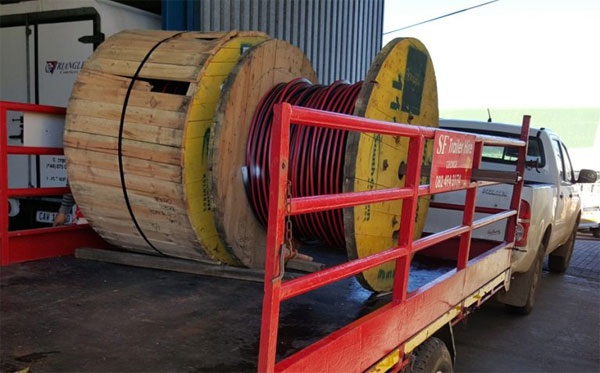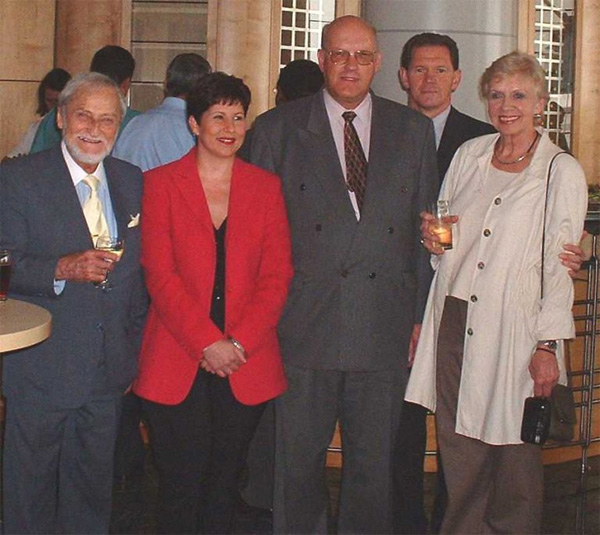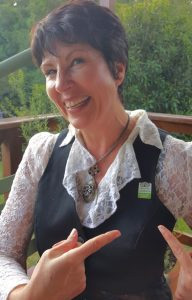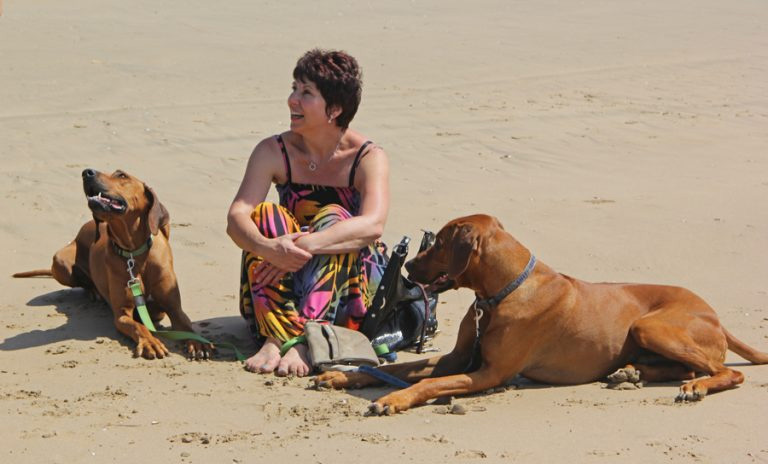


Ronel has 24 years corporate experience at senior levels (finance, mining, IT, manufacturing & agriculture), a B.Com degree (Business Management & IT) and postgrad Business Management (Henley). She has also started 6 small businesses over the past 22 years, 5 of which are still operational today due to her expertise in Digital Marketing. Ronel helps entrepreneurs to grow their businesses via a sustainable competitive advantage in the Digital Arena.
POST DATE: 2017-04-19
POST UPDATED: 2020-04-26
POST UPDATED: 2024-11-22
At Website Silk we are all about helping entrepreneurs with their digital marketing. We strive to help people run SUCCESSFUL small businesses. So much so, that I'll bare my soul and get vulnerable in sharing with you today... please go gently on me!
You can study a string of How To...; The 7 Secrets of...; The ONE thing that you need...; - you get the picture. You can have have a custom website development job done, commission several high-flying PPC Adwords Paid Search Campaigns and it may still leave you confused about your iffy results. We can share every single technical secret we know about running a successful business with you and still, for the most part, your breath-taking entrepreneurial triumphs will depend on YOUR inner self.
Stay with me; this is important: EVEN IF you implement absolutely everything we share or teach, your business victories will remain wispy mirages until you perform Your Inside Job. You can fake it, but not forever.
The crux is that you need Self-Awareness and a sincere desire to become the very best version of yourself by uncovering blind spots, changing flawed subconscious beliefs, cultivating empathy for your clients and growing your ability to continuously energize yourself despite adversity.

Most successful Entrepreneurs will admit to having a life coach, a business guru guide, a spiritual advisor, an industry mentor or at the very least, they will be voracious readers of business and self-help books, and articles.
WHY is this so critical?
If we operate from a victim mindset, we believe someone "did" something to us. We hear potential clients say: "they stole my concept", "my business went under when the bank refused another advance", "no-one would fund me", "google changed the algorithm", "because I am white / black / female, too old / young, in a city / small town", "my market is just different", "they don't get how good I am" or perhaps the most insidious of all: "no matter what I do, it never works out for me".
In my early years as a computer programmer, a Senior Manager threw his ash-tray at me (smoking was still allowed in offices those days!) because I didn't answer his phone when his secretary was out to lunch. He yelled at me that this is why females should not be appointed in non-secretarial jobs (illogical, much?)
I cringed and apologised. I remained a target for his abuse for months before I finally listened to a wise friend who helped me to see the light and move on to a job where I was valued.
Did he display sexist behaviour? Sure!
Did this mean I was helpless to act? NO!
The key to understanding why this victim mindset is so debilitating, is because when we perceive the cause of something to be only OUTSIDE of ourselves (i.e. "them"), then we feel helpless to change it.
Only when we own the fact that we are masters of our fate, can we RESPOND by overcoming, accepting, fixing or changing.
Undoubtedly things DO happen to us outside of our control and I am not minimizing this at all! There is nothing we can do about such events, but we have total control over how we respond to them.
In more recent years when I owned a holiday resort, I had an electrical transformer burst into flames, causing further damage to a supply cable running through a forest, plus burning appliances, a gate motor and other electrical necessities of running a hospitality concern.
All this while I had a fully booked resort with wonderful, trusting guests (some repeat visitors) who had all paid in advance for their much-deserved holiday.
An extremely painful comedy of errors ensued. There were insurance and legal issues re access to electrical supply points NOT on our property, no availability of a replacement transformer and a lack of manpower over the holiday period to install a new cable over a distance of about a kilometer.
I worked day and night; I pleaded with difficult neighbours denying access, I drove long distances at night with a heavy transformer on my truck to have it re-winded, I endlessly cajoled supply companies for faster delivery, I helped carry tons of cabling with a team of hungover casual labourers through muddy dense forest in pouring rain. I was forced to refund my guests and help them find alternative accommodation for a period of 3 weeks! The refunds, plus the actual infrastructural costs meant the worst business setback I have ever experienced and I took a major knock.
And none of this was under my control, agreed?
I started out in a state of complete shock, feeling done in and cornered. I could not believe that there simply seemed to be no end to the problems descending on me like an avalanche!
Then I realized that there were still avenues I COULD control: my pro-active communications with guests meant that the resort did not suffer any reputational damage because of this; my insistence that we do not bend laws or drop safety standards in the correction of the fiasco meant that ultimately we had a more robust electrical supply system than ever; I sought legal advice regarding access to supply on/across neighbours' land; I searched for and connected with great suppliers that I came to rely on for years after that.
We even received a couple of very flattering public reviews on our handling of the situation - what better PR than how we treated guests while being at rock bottom?

Clearly bad things DO happen to good people. Just as long as we don't paralyze ourselves staring at the obstacle in our way, but instead choose to move it or flow around it and move on. This is the meaning of taking Response-Ability.
Due to past experiences, even childhood trauma, we ALL run dis-empowering mental programs that we are mostly NOT AWARE OF.
A subconscious belief that any success can only be attained by working day and night to the exclusion of all else will result in over-work and burnout. And it will make you blind to opportunities and methods that could shave years of work off your efforts.
A subconscious belief that everyone is out to get you, will result in becoming overly cautious and suspicious which will scare off good prospects, thereby re-inforcing your believe that "they" won't support you.
A subconscious belief that you don't deserve great success, or that major wealth is "evil" will stop your business from growing past a certain point, no matter how hard you try to break through.
The good news is that we can break through such unconscious saboteurs to our success, IF we are willing to become aware of what they are, and work with a trusted mentor to take tiny steps to create a new replacement belief that will serve us better.
Back to my own years in corporate early-1980's. I was raised a really polite, obedient "good girl". It never occurred to me that it would be appropriate in a business setting to speak up or even to disagree (lordy!) with my elders in meetings. I avoided conflict and whilst delivering superior work I was overlooked for promotions and team leader positions.
This continued until a mentor pointed out that by remaining quiet I was actually NOT delivering the value that I really should be with my unique insights and opinions. I was given little exercises to flex my "speaking out" muscle until my mind was rewired accordingly.
I have come a long way since then, and not shy to offer an opinion now... the joke is that I am "often wrong, but never in doubt" :)
Professional help is available to help uncover such restricting beliefs and our brains' wonderful neuro-plasticity means that it is possible to create new empowering "paths". It is said that neurons that fire together, wire together - meaning as much as a negative belief can trip us up, a positive belief makes it progressively easier and easier to do what once seemed impossible.

Do you feel like you've been hitting your head against a brick wall? Do your efforts fail you at a certain point every time? Have you tried changing your approach yet was unable to change your results?
Feedback is a gift. We may not always like getting it, yet it can mean pure gold to our success.
Can you remember playing the game "hotter" & "colder" as a child, where you had to find an item hidden by others? Business feedback is really no different from this game, if we can relax into it.
Positive feedback is an indication that we are on the right track and serves as very welcome encouragement on an often lonely entrepreneurial road.
It's easy to feel defensive or even to react aggressively when we receive negative feedback we did not expect. In the process we often throw out the baby with the bath water!
Around the time of 9/11 a personal disaster also struck me: I was heading up a division of a couple dozen people and after a climate survey it turned out that my team saw me as too task-oriented and not approachable.
I felt horribly misunderstood, unfairly judged and a little victimized (also see point 1 above). Of course I felt that I was the perfect, caring queen of the "open-door policy"!
One of the best decisions I ever made was to schedule a series of workshops with my staff over several weeks, in which we progressively unpacked their anonymous complaints to a postbox I instituted as a result of the climate survey.
It is impossible for me to impart the true magnitude of shame and anger this "truth and reconciliation" process incited in me. In some sessions I was red-faced and shaking, in others I was struggling to hold back tears. Stories were told of my behaviour where I was short with an already overworked team during a big international implementation: suddenly, from their perspective I could now clearly see that they, too, were at breaking point from the strain and that I was not as empathetic as I should have been.
Some accusations were plain rubbish and it angered me that some staff members would stoop to using the anonymous postbox to simply cause trouble - but the very fact that I was willing to listen and debate each complaint in an open forum now meant that the rest of the team were quick to "sort out" these false accusers! It should go without saying that one should calmly listen to all feedback, but to exercise wisdom: the choice remains yours whether to "take on" something or to understand that it has nothing to do with you.
Apart from facing my emotional shortcomings during this process and growing immensely in maturity and EQ, the team spirit and true openness this created afterwards was immeasurably positive.
(Note: I do NOT recommend this process unless you have great emotional support or a good life coach or counsellor !)

Feedback is useful to show us, for example:
It stands to reason that we should not only welcome feedback (even if it jolts a bit at first), but that we should actively invite it.
The most successful businesses consistently invite feedback, often through a formalised feedback form or satisfaction interview. Feedback is then taken seriously especially where trends are concerned.
Be wise enough to sniff out the merely "trouble-making" feedbackers. Follow your gut and you will know what feedback to ignore.
I received invaluable advice from a star-grading assessor early on in my resort-owning years: always, always, always ask for feedback. Even if they seemed to have hated the experience. How glad I am that I followed his advice (feedback)!
One day we received an absolutely horrendous review on Tripadvisor from a thoroughly unpleasant couple who clearly had an argument on arrival and needed to "dump their stuff" on someone else. The horrid lies they sprouted, in writing, for all the world to see literally aged me by years overnight. For days I could not sleep or eat - I felt defenseless (see point 1 above) against the unfair attack on our best efforts to try and please them.
I phoned the assessor in tears, asking for advice and I will never forget his wise words: "Just rest and be kind to yourself for a week. Then, open your heart to any part of it that could possibly be true and do something about THAT. Let the rest wash over you and let it go. Put your efforts into the hundreds of guests who appreciate what you offer, instead of wasting your energy on the one crazy you never want back anyway."
Since those early days I have truly mastered the art of inviting feedback. I have learned to listen past the sometimes unattractive packaging of delivery, to unearth the content gems. I have learned not to take it personally, but to take it seriously.
I have learned that inviting people to give feedback when the experience was still fresh in their minds was invaluable.
Those who gave positive feedback were more specific about what we were actually doing right which not only served as welcome encouragement but also indicators of what delighted our guests.
Those who gave negative feedback were less likely to go vent on a public forum when we received their written feedback directly and illustrated that we were taking it seriously.
We could see trends develop that we benefited from (e.g. over a decade our market shifted to being a lot more eco-friendly and willing to pay for consistently outstanding service).
Some feedback we could predict but we had a business imperative to not implement (e.g. in summer guests wanted a swimming pool, but with natural, deep rock pools in the forest within walking distance why would we dissuade our customers from experiencing THAT bliss?)
At the time of selling this business, we had a 99.9% satisfaction rating on Tripadvisor from hundreds of reviews. I firmly thank our simple little feedback form for this...
Another feedback tip is to remain accountable to your audience and to let them know what feedback you've received and what you are doing about it (e.g. via your newsletters / blog). Clients also appreciate knowing that their feedback made a difference or that changes were made as a result of it - send a personal thank you note!
More advanced techniques around Feedback include knowing at what level to GIVE feedback, e.g. to your clients in assessment reports or quotes, as it depends how mature they are in receiving feedback and how sensitive they are. Thinking about this may prompt you to either give direct, succinct feedback, or to tone it down for a gentler, more subtle approach.

While on this topic, I am a great believer in constantly scanning my suppliers to pick out who I can thank and give positive feedback to; we never know when a solopreneur is having a bad day and a word of appreciation can only make the world a better place!
(If so, feel free to contact me for just some friendly support and some insider advice in turning it to your favour, wink-wink).
If you run your own business you undoubtedly know all about disappointments and setbacks. Actually, if you are simply daring to really live Life, you know all about distress and frustration. It's just how it is.
We've all been kicked in the teeth good and proper. It is also OK to simply stay lying in the mud for a moment, feeling defeated and downtrodden.
There can even be magical release in embracing the very rock-bottomness of such a place... (During my transformer blow-up saga, I reached a point of weird euphoria: "If I can survive THIS, I'll be OK no matter what"). At some point though, it serves us best to get back up, dust ourselves off and limp off to find a way through the setback.
Bouncing back is a "muscle" that we can grow stronger so that we start positively deciding and acting sooner, even though we may be grieving for a while still.
I was once fired from a job as an IT lecturer at a College, because I went to sit by a dam before class and got entranced by a baby hedgehog swimming across the dam right towards me, his tiny nose making a perfect V in the still water. One of the students came to find me 45 minutes later, still smitten with the wriggling baby I was drying off and trying to find food for.
The Principal was furious and had no mercy. I was in shock that I had just halved my income (I was earning R350/month at the time as a 20-year old computer programmer, so I desperately needed this moonlighting income). But mostly, I was terribly ashamed of my silly mistake and I would not leave my flat for fear that I would run into any of my students, that I had so let down.
It took me more than a week to process this to the point of sticking my own nose out the door again. Of course, I also learned a valuable lesson about there being a place and time for everything.

Some disasters are bigger than others and the loss of a family member or one's health, abuse, or a serious accident come to mind. In some instances we desperately need support and professional help.
Fortunately for me, I learned a very direct lesson about needing to grow in empathy (see point 3 above) that has stood me in good stead in my relationships and in my work life since.
I do not believe we are naturally born fully empathetic. We are trained by parents, or life, to try and see through another's eyes and to imagine walking in another's shoes.
One of the gifts of feedback and setbacks (see points 3 and 4 above) is that once we've been the butt of life's jokes, it becomes so much easier to feel empathy for someone else undergoing a tough situation.
We also often fall foul of the thought that others see the world the way we do, and nothing could be further from the truth. We are truly unique and offer distinctive gifts and strengths to the world, and we each have our own matchless weaknesses and blind spots.
Later in my life I had the experience of having a close partnership with someone I was eventually led to believe displayed extreme Narcissism. It took me a while to truly "get" that this person was actually incapable of any empathy due to a deep childhood wound (although he could fake it when it suited his agenda).
He absolutely believed that he was superior to everyone around him. He'd become violently enraged if he even just perceived anyone to be questioning his authority, or if he felt lessened or threatened in any way. E.g. he once raged, red-faced and stomping, for hours when a close friend arranged a rare, unique opportunity for him to spend time with a small, elite group of top-class professionals in his field. He was fuming that his friend must surely know that he'd be made to look inferior around these national icons!
He'd resort to domestic abuse on occasion though he was careful to only unleash this rage on his nearest and dearest whom he tried to control with the usual narcissistic tactics of gas-lighting, withdrawal, projection, intermittent reward, triangulation and constant criticism. When confronted by his (then) wife about the way he treats people, he responded: "Well, if people don't listen when I first explain to them how a thing is, they deserve my fury". She left him.
One day he put my staff and I in terrible danger during a roadrage incident and it became clear to me that this was not the kind of partnership or energy that I wanted to have in my life or business. I disbanded the partnership immediately despite the emotional and financial anguish this caused.
Observing all this close-up, was a big lesson to me on the importance of seeing others around us as equals bringing unique value, and the absolutely critical importance of empathy.
We cannot know the burden of another's soul unless we try to hear them clearly. We can be so quick to judge... This then was also a big test to overcome my own judgement of this man, and it took me some time before I could fully relax into feeling empathy for the hurt, wounded being underneath all the damaging bluster (while I stayed safely at a distance!)
Once we've been put through the mill of life, and allowing our empathy for others to grow... What a gift we then have to give!
In business, it makes for better client interactions if we truly listen to hear about and understand their challenges before we set about solving them. Understanding a client's viewpoint also helps us to structure everything we do to make the user experience better.
True connection and respect also require empathy, so especially if we strive for deep, lasting and meaningful connections, this aspect of ourselves needs to be nurtured.

Bottom line? True empathy makes for joyful connections AND it is sound business practice.
* Coined by my friend Dr Dorian Haarhoff, author, lecturer and coach.
If we want to build a business (or build anything to something meaningful), we are in it for the long haul.
We will not have the staying power needed if we over-work or over-give. A vessel that keeps pouring, will run out if not re-filled!
Many of our clients struggle with finding the balance between truly wanting to help their clients, and keeping themselves physically and emotionally fed. I hear stories from my clients about working through the night or during family holidays to please an especially difficult or demanding client. When we probe this together, I often, eventually, hear the fear: "but what will they think of me if I don't?" (also see point 2 above).
Other entrepreneur clients cannot remember when last they took a proper holiday or even a long weekend break and the research is clear on the direct impact on health of not resting often enough. Your business will suffer if you get sick or worse - chew on that...
Issues around Balance and Boundaries run deep and there are many good books, therapists and processes we can recommend you work with if you need help in this area.
A key thought: if you don't look after yourself, you won't be able to keep giving YOUR gift!
I am prone to getting very excited when I get a new client who needs exactly what I offer. I still, even now, will often say Yes to aspects of the work that I should say No to.
For example, I feel guilty when I need to ask the client to do some homework, e.g. on the keywords they most want to rank for in their website. I feel that I am here to make their load lighter, not give them more work! So I often end up trying to do their part of the work for them. The truth is I can NOT do it as well as they can, as I do not know their industry, business and preferences as well as they do.
Another example is me offering to facilitate the creation of client logos by 3rd parties. I did not charge for this in the beginning as I saw it as part of the bigger picture of the Digital Marketing Engine I'd be building for the client. The first couple of logos I facilitated gave me gray hairs! I'd spend an average of 20 (uncharged!) hours per logo, smoothing upset graphic designers' feathers and trying to entice offended clients to please give some feedback to try and move the process forward. Trying to help only drained me and neither the clients nor the designers grew stronger in their own creative interaction processes.
In both examples, I've had to accept that my "rescue" attempts are dis-empowering to other parties; in reality I know how much they will learn and grow in their own business maturity if they are forced to do critical business thinking and negotiation for themselves.
We now suggest designers for clients to approach directly, or we charge if the client still prefers us to facilitate the process.

As humans, we can tell when we've had our boundaries crossed as this often results in anger, resentment or a gnawing feeling of unease in the pit of our stomach - not to mention exhaustion.
Oh, I know. How often we wish the wheel of karma would turn a little faster so that we could witness the comeuppance of a someone who got ahead through conniving and dishonesty!
Being of the hard-working, honest sort myself, this is one of my pet peeves. Yet, this is often the reality. Even worse, there are business books and courses out there to help you get better at "playing the game". There are, of course, perfectly honest aspects of business politics, like getting traction for your ideas, truly listening to a colleague's opinion to help build it out, inviting yourself when excluded from decision circles and, speaking up in a level and unemotional manner.
I have seen it written that ethics is doing the right thing even when no-one is looking. Nice.
If you employ shady gray- or black-hat approaches, I have news for you - they will only get you so far. I am old enough to have seen the mighty fall, sometimes only 20 years later, because they tried to bypass self-growth by taking ethical shortcuts. Often, the dishonorable are overthrown by peers they themselves originally taught to be equally immoral. And sometimes, a reign of tyranny is only ended by death.
I eventually started disengaging from a formal, senior corporate position (not a company I mention publically, to avoid retribution), when it became clear to me that some of what was expected from me was not ethical, some of it even borderline illegal. When asked to stay quiet about millions embezzled by a key senior player in the financial industry, while also being asked to support his extra-marital affairs "like a true team player, it should be as if you yourself are right there in bed with them" - I left as quickly as my legs could carry me!
To be honest, I certainly do not have the constitution or aptitude for the level of game playing required in the upper echelons of the financial world. And so be it.
This was underscored for me when a consulting colleague had committed suicide, which I only later understood was probably as a result of unlawful shenanigans he was required to commit earlier in his high-flying career.
I realized that playing with the "dark side" was a slippery slope and not for me. I prefer to stay above board and to sleep well.
Boring? Predictable?
Yes, please.
It is also a waste of time to wait for the unprincipled to fall; our energies are better spent keeping our own front stoep clean.
In any event, if you want to sleep the sound sleep of a person who has done their best without abusing anyone else, ethical behaviour is your only choice!
Being a complete success at small business (or at life) is most definitely An Inside Job. The buck stops with YOU. All eyes are on YOU. There isn't a big corporate engine to hide behind.
To be noticed, you have to get OUT there. And that requires from you to be brave, resilient, self-aware and ever-evolving. It is an ongoing process of becoming.
We make mistakes, we learn, we improve; it's a life-long quest.
I would dearly love to hear about your own stories and insights about success being an inside job - let's chat?
2018-03-04 Ron Keating: A most heartfelt piece of writing. Thanks for sharing your personal stories, it helped so much to drive these success messages home! It seems like you could write a book on it or something. A fantastic read.
Ronel: Thanks Ronald. I must admit, posting this article made me feel a little vulnerable, though I knew that real life examples will resonate more easily with people, thereby helping them better.
2020-10-18 Anayo Agu: Deep wisdom shared here from the beginning to the end. You gave me tons of insights to deal with current challenges and to guide many others who look up to me as their 'guru'. Response-Ability is a concept I thought about and even spoke about in a seminar for network marketers over ten years ago but thereafter, I never really developed or consciously put it to personal use. Thank you very much indeed for bringing it back to my consciousness especially with so many wonderful, life-transforming stories and business experiences.
Ronel: Thanks Anayo, I am so glad you enjoyed this deeply personal article. Keep up the good work you do in guiding people with your own wisdom too!
2024-09-25 Noni: I'd feel very vulnerable if I'd have to share life stories on this level; still I got great value from yours.
Ronel: This is why I went out on a limb, Noni, as we all learn best from stories.
We love to hear your thoughts! Please comment below; once vetted, we'll post your comment here (usually within a day at most).
Be notified of our new articles (only 1-2 a year, since they are in-depth), by
subscribing to our Newsletter![]()